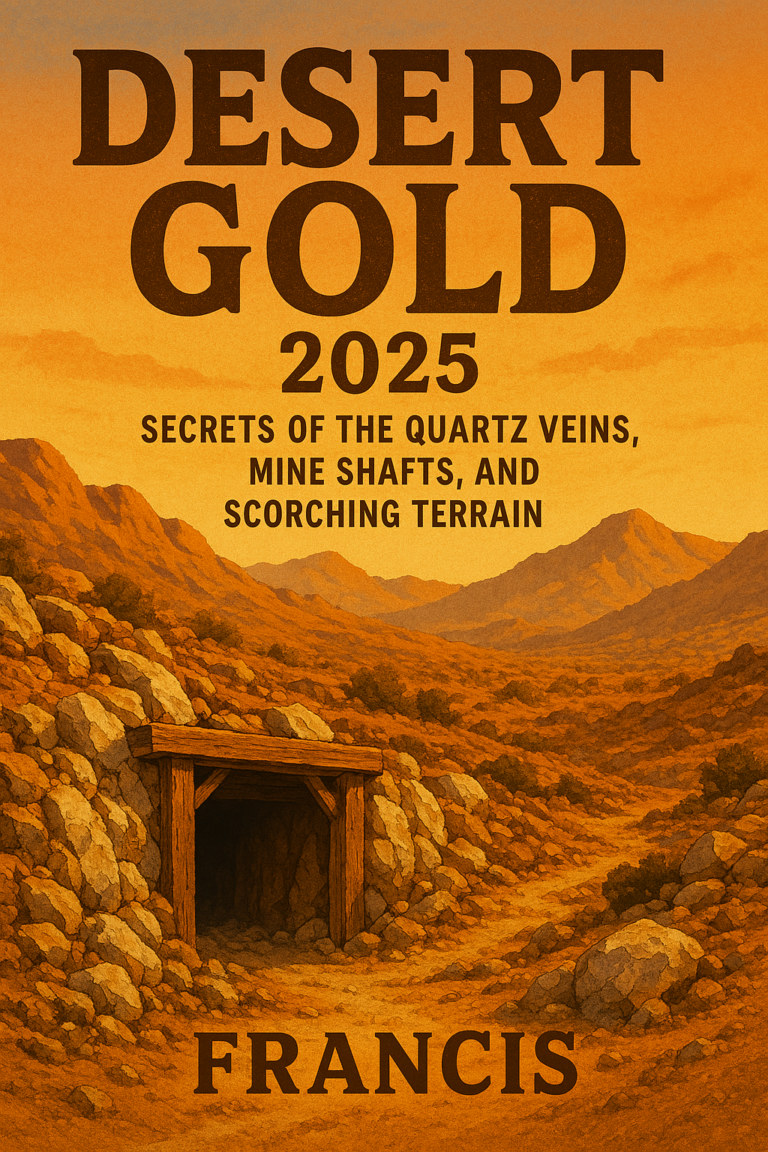

The Spirit of Gold Land: How the Indigenous People of Arizona Dealt with Gold Miners
In the rugged and sun-scorched landscapes of Arizona, long before European settlers and gold-seekers arrived, indigenous tribes revered the land they called home. The Apache, Pima, Tohono O’odham, and other tribes lived in harmony with the desert and The Spirit of Gold Land. They drew sustenance from its sparse resources and held a deep spiritual connection to the land.
The Legend of the Golden Tears
Among the tribes, elders passed down a powerful legend through generations—a story of the “Golden Tears.” According to the tale, the Creator, overwhelmed with sorrow for the people’s suffering, wept golden tears that fell from the heavens and buried themselves deep within the earth. These golden tears held immense power. However, the elders warned that those who disturbed them would invite imbalance and sorrow upon themselves.
The indigenous people viewed the land as a living entity—not as something to conquer or exploit. They relied on it for everything they needed: food, water, and shelter. Although gold shimmered with natural allure, they considered it part of the earth’s spirit—something to respect, not to disturb.
The Arrival of the Gold Miners
When gold miners first arrived in Arizona in the mid-19th century, they brought dreams of striking it rich. Stories of golden fortunes buried in the mountains and riverbeds fueled their ambitions. However, the indigenous people saw these newcomers as intruders—men who failed to understand the desert’s delicate balance.
The miners pressed forward relentlessly. They dug and panned without pause, disrupted sacred sites, and claimed lands that generations had revered. Their tools clanged through once-quiet valleys, while dust from their digging drifted into the air like a curse.
Resistance and Diplomacy
The indigenous tribes, who had lived on the land for thousands of years, were not quick to surrender their sacred places. Some, like the Apache, resisted fiercely. They saw the miners as a threat to their way of life and the spirit of the land. Raids on mining camps were not uncommon, and the Apaches used their deep knowledge of the terrain to launch surprise attacks, driving the miners away from their sacred sites.
However, not all interactions were marked by conflict. In some cases, the indigenous people chose a path of diplomacy. They approached the miners, trying to convey the sacredness of the land and the consequences of disturbing it. Elders would tell stories of the Golden Tears, hoping that the miners would understand that gold was not simply a commodity but a part of the earth’s spirit.
Some miners, moved by the wisdom of the indigenous people, left the land undisturbed, seeking their fortunes elsewhere. But many others, driven by greed and the promises of wealth, ignored the warnings and continued to dig, oblivious to the cultural significance of what they were doing.
The Consequences
As the years passed, the relentless pursuit of gold took its toll on both the land and its people. The miners stripped the earth, rivers ran dry, and the once-thriving ecosystems began to wither. The indigenous tribes, whose way of life was so closely tied to the land, suffered greatly.
The prophecy of the Golden Tears came true for many. The gold brought wealth to a few, but it also brought misery, conflict, and an irreparable rift between the indigenous people and the settlers. The land, once a source of life and spiritual connection, became scarred with the marks of greed.
A Lesson from the Past
Today, the story of how the indigenous people dealt with gold miners serves as a poignant reminder of the importance of respecting the land and the wisdom of those who live in harmony with it. While gold brought great changes to Arizona, the enduring spirit of the land and its people remains a testament to the resilience of those who understood that the earth’s treasures are not meant to be taken lightly.
The Golden Tears, though hidden deep within the earth, continue to hold their silent power—a reminder that true wealth is found not in what we take from the earth, but in how we honor and protect it.







